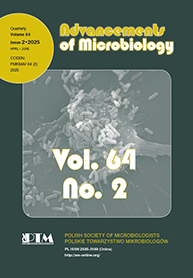Abstract: Staphylococcus aureus is a Gram-positive bacterium, which can cause serious bacterial infections in humans. It constitutes an important etiological factor of many diseases, for instance, soft tissue and skin infections (including skin boils and abscesses), as well as life-threatening necrotizing pneumonia or toxic shock syndrome. It is estimated that about 25–30% of people are carriers of S. aureus mainly in the anterior nostrils. A smaller percentage of people are carriers of methicillin-resistant S. aureus (MRSA). In accordance with its definition, methicillin-resistant S. aureus is resistant to almost all β-lactam antibiotics. This phenomenon is mainly caused by the presence of penicillin-binding protein in the cell wall – PBP2a, which is the product of the mecA gene, which is part of the complex called SCCmec (staphylococcal cassette chromosome mec). Methicillin-resistant S. aureus (MRSA) results in endemic in hospitals around the world and are one of the leading causes of morbidity and mortality in society. Infections initiated by hospital strains of MRSA (health care-associated MRSA, HA-MRSA) concern mainly immunocompromised patients after surgery. In addition, there are populations of acommunity-associated MRSA (CA-MRSA) strains and populations of livestock-associated MRSA (LA-MRSA) strains. The treatment of infections with MRSA etiology, after exhausting the possibilities of standard antibiotic therapy with the use of i.e. vancomycin, is based on treatment with new-generation antibiotics, such as dalbavacin.
27 June 2023

